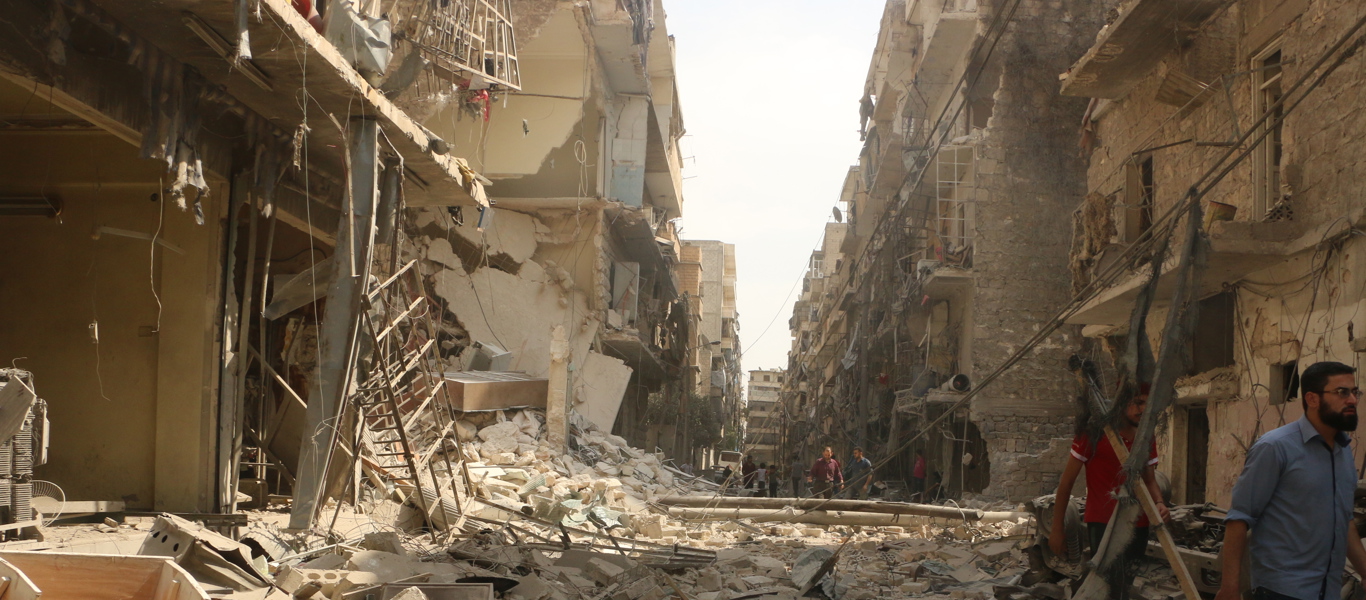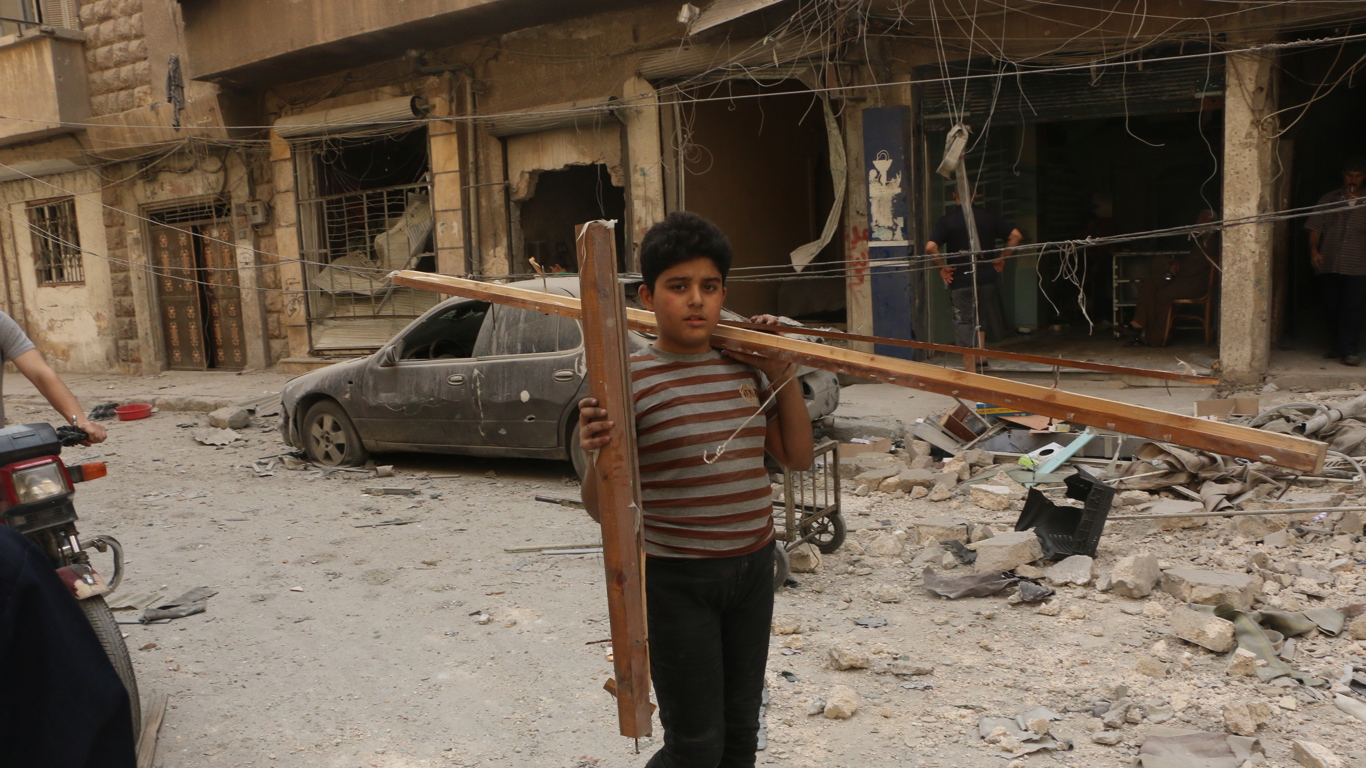
Open Letter To UN Security Council Ambassadors
Open Letter to the UN regarding the upcoming vote on the Syria cross-border resolution.
The United Nations Security Council has until July 10 to renew the Syria cross-border resolution, which ensures life-saving UN aid reaches millions of Syrians in need. NGO leaders are calling on the Security Council to renew the resolution for a period of 12 months and guarantee UN cross-border access to both North West and North East Syria.
Excellencies, The United Nations Security Council will soon be faced with a critical choice – whether to let avoidable suffering and loss of life proceed under its watch, or to take decisive action to support Syrian people in need, no matter where they are.
As Council Members you have a responsibility to uphold your commitments to the protection of civilians caught up in conflict and to ensure millions of Syrian families struggling to survive are not denied access to timely, life-saving humanitarian assistance. Humanitarian realities on the ground should drive Security Council action on the UN cross-border response in Syria. The level of crisis demands the reauthorization of cross-border assistance to North West Syria via Bab al Hawa and reinstating Bab al Salam crossing, for a minimum of 12 months. It also requires reinstating the Al Yarubiyah crossing in the North East, where needs have grown 38% since the crossing was closed in January 2020.
The Security Council came together in 2014 to authorise cross-border access, one of its few moments of unity in relation to this conflict. The imperative then, as it is now, was to ensure aid reached Syrians in a principled manner wherever they were, on the basis of need alone. Today, the needs and challenges people are facing across Syria are greater than ever before, with the number of those in need of assistance rising 20% in the last year alone. A decade of conflict has created one of the worst protection crises in the world, left millions food insecure and reliant on aid, and has forcibly displaced Syrians who continue to live in dire conditions.
Eighty-one percent of people in the North West and 69% in the North East are in need of aid, an estimated half of whom are children. For millions of Syrians who live in these areas, the cross-border mechanism has been a critical lifeline providing food, shelter, protection, medical and other lifesaving services.
Without a resolution that secures cross-border access for 12 months, humanitarian actors will be unable to adequately respond to growing needs and the spread of COVID-19 in North West and North East Syria. Without a resolution, the nascent COVID-19 vaccination campaign will be halted in its tracks for millions, undermining efforts to end the pandemic in the region and globally. Without cross-border access, we predict that one million people dependent on food baskets delivered by WFP will be left without food assistance by September 2021.
Reductions in aid harm the most vulnerable Syrians, including displaced populations, women, children, and persons with disabilities. Without a large-scale cross-border response, lives will be lost.
In the North West, the Council’s decision not to reauthorize the Bab al Salam crossing in July 2020 left the humanitarian response reliant on one single crossing point. This reduction in access has needlessly put people’s access to aid and now COVID-19 vaccinations at risk. Just three months ago the vicinity of the one remaining crossing, Bab al Hawa, came under attack, causing damage to NGO warehouses and humanitarian supplies. Ongoing violence risks cutting off the only remaining access to food, vaccinations, and other critical supplies for people in North West Syria. The authorization of both Bab al Hawa and Bab al Salam is critical to ensure regular and reliable supplies of aid to an area of Syria that is home to some of the most severe needs and largest displaced populations.
The Council’s decision in January 2020 to restrict the UN’s access through the removal of the Al Yarubiyah crossing point has had dire consequences in North East Syria. Just as the first cases of COVID-19 began to emerge across the globe, the Council’s decision delivered a huge blow to an already decimated healthcare sector in the North East. Now, as COVID-19 cases continue to rise and spread across densely populated displacement camps such as Al Hol, NGOs remain unable to fill the gaps that have been left, facing shortages of PPE, essential medicines, COVID-19 testing kits and medical supplies.
Principled humanitarian action through both cross-line and cross-border modalities in North West and North East Syria remain the only way to support millions of Syrians in need of humanitarian assistance. There is no alternative. We look to you as Security Council members to ensure that this vital lifeline is extended and expanded, ensuring Syrian children don’t have to skip another meal, expectant mothers won’t miss out on maternal care, families don’t resort to negative coping mechanisms to survive, and humanitarians and healthcare workers are enabled to mount an effective battle against COVID-19. Our organizations' ability to maintain, much less expand, our life-saving aid and services is at stake. Now is not the time to scale back humanitarian access.
Yours sincerely,
David Miliband - President & CEO, International Rescue Committee
Inger Ashing - Chief Executive Officer, Save the Children
Sofia Sprechmann Sineiro - Secretary-General, CARE International
Gabriela Bucher - Executive Director, Oxfam International
Jan Egeland - Chief Executive Officer, Norwegian Refugee Council
Andrew J. Morley - President & CEO, World Vision International
Samuel A. Worthington - Chief Executive Officer, InterAction
Dominic MacSorley - Chief Executive Officer, Concern Worldwide
Tjada D'Oyen McKenna - Chief Executive Officer, Mercy Corps
Eric Schwartz - President, Refugees International
Manuel Patrouillard - Global Managing Director, Humanity & Inclusion
Amanda Khozi Mukwashi - Chief Executive, Christian Aid
Dr. Jihad Qaddour - President, Syria Relief & Development (SRD)
Othman Moqbel - Chief Executive, Syria Relief
Caoimhe de Barra - Chief Executive Officer, Trocaire
Ramin Shahzamani - Managing Director, War Child Holland
Dr. Mufadddal Hamadeh - President, Syrian American Medical Society
Dr. Zaher Sahloul - President, MedGlobal
Ann Koontz - Chief Executive Officer, Relief International
Dr. Jennifer Coolidge - President, Big Heart Foundation
Šimon Pánek - Executive Director, People in Need
Faddy Sahloul - Chief Executive Officer, Hand in Hand for Aid and Development (HIHFAD)
Baraa Alsmoudi - Executive Director, Ihsan Relief and Development
Osman Dulgeroglu - Chief Executive Officer, Embrace Relief Foundation Inc
Umar al-Qadi - President and CEO, Mercy-USA for Aid and Development
Hisham Dirani - Chief Executive Officer, VIOLET for Relief and Development
Ms. Nadia Alawa - Chief Executive Officer, NuDay
Mahmoud Al Shehadi - Chief Executive Officer, Orange Organization

